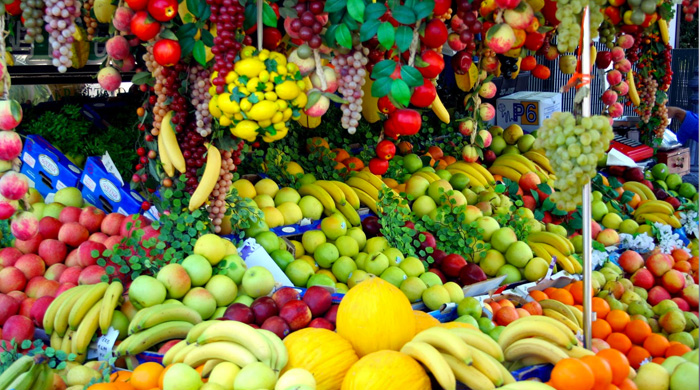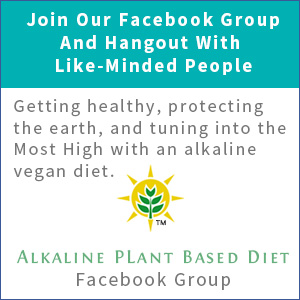Whole Food Plant-Based Diet
The Whole Plant-Based Diet

The Diet Centered On Plant Foods
My plant-based diet consists mostly of eating whole alkaline non-hybrid foods on this nutritional guide based on the Dr Sebi food list.
The body functions at its best when it the blood and urine have a pH of 7.4. This slightly alkaline state removes unwanted hydrogen from the blood and promotes proper oxygenation. The consumption of whole alkaline plant foods supports this alkaline environment and activates and strengthens the immune system.
An alkaline whole food plant-based diet also removes the consumption of toxic foods that promote the production of excess mucus in the body. The body uses mucus to protect its mucous membrane that serves as a barrier to toxins and pathogens.
Prolonged production of mucus also compromises the mucous membrane of the organs and allows pathogens to penetrate them and interfere with their functioning. Non-hybrid alkaline whole plant foods saturate the body with vitamins, minerals, and phytonutrients that have chemical affinity with the body and supports homeostasis.
The thing that is extra special about how I approached adopting a plant-based diet is I used various organ cleanses to jump-start my cleansing process and plant herbs to the health and vitaliy in my body.
My Life On Version 2.0
My plant-based diet which is comprised of mostly whole foods has bumped my life up to version 2.0. I am in my late forties and I have dramatically improved my physical, mental, and emotional well-being.
My reason for adopting a plant-based diet was solely based on improving my health, but it turns out that a whole food plant-based diet is also good for the environment.
If more people would eat a plant-based diet we would reduce deforestation, land erosion, green house gases, and minimize the negative impact of climate change. We would save precious fresh water and the lives of animals that are treating inhumanely by factory farming methods.
We would also protect a dying ecosystem that is struggling to support our lives and the rest of life on earth.
Versions Of A Plant-Based Diet
Whole Food Plant-Based Diet
There are different versions of a vegetarian diet with a whole food plant-based diet being at the top of the list. A whole food plant-based diet is made up of whole unrefined plant foods that include fruits, vegetables, nuts, seeds, legumes, and whole grains.
The diet excludes meat and meat byproducts which includes red meat, chicken, fish, dairy, and eggs. The whole food plant-based diet also excludes refined and processed foods like sugar, oil, flour, pastries, cakes, and pizza.
Within the whole food plant-based diet there are also people who only eat raw, or uncooked food to preserve as much of the food’s nutrients as possible. Either way the whole food plant-based diet is the most nutrient dense diet loaded with natural vitamins, minerals, healthy fats and protein, and phytonutrients.
Plant-Based Diet
A plant-based diet is right below the whole food plant-based diet, but it can be a healthy or unhealthy diet depending on the person’s approach.
A dietary vegan primarily eats a plant focused diet to maximize health by eliminating the consumption of carcinogenic, pathogenic, and toxin laden animal-based and processed foods. The dietary vegan also focuses on consuming the most health promoting plant foods, which are whole fruits, vegetables, nuts, seeds, legumes, and whole grains.
An ethical vegan doesn’t necessarily focus on eating the most health supporting plants foods, and may be comfortable eating mostly processed plant-based foods the cakes, pastries, pasta, grain products, sugar, oils, and flour. Though these foods are plant-based they lose their effectiveness in supporting health because of the unnatural chemical additives and preservatives added to them, and their refinement that removes health supporting fiber and nutrients.
Vegetarian Diet
Below the plant-based diet is the vegetarian diet. There several categories of a vegetarian diet which is focused on the consumption of plant foods, but does allow for animal or animal products.
The lactovegetarian diet allows for the consumption of dairy products. The ovo-lactovegetarian or lacto-ovovegetarian diet allows for the consumption of dairy and eggs. Semi-vegetarians avoid eating red meat and will consume chicken, fish, dairy, and eggs.
Flexitarian Diet
A flexitarian diet is one where you would eat a vegetarian diet most most of the time, but on occasion you could consume anything you wanted. Though all of these diets offer some benefit in removing toxic food from the diet while adding more health supporting food, the more you move away from the top the less you will support your health.
More: Things to know to successfully switch to a vegan diet »
Tags: plant based diet, whole food plant based diet







